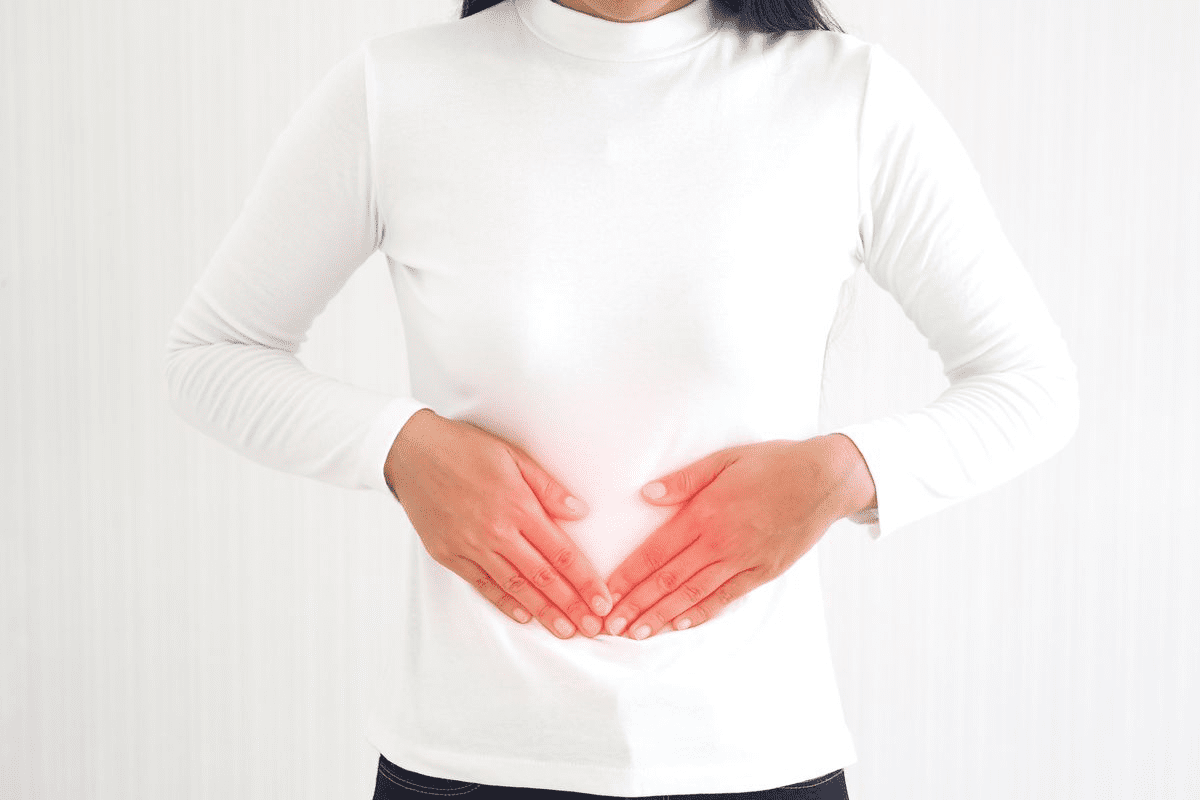
Kidney stones, or ureteral calculi, are small, hard deposits that form inside the kidneys. They can cause severe pain and discomfort. We will discuss the basics of this condition.
What are the ureteral calculi symptoms? Learn to identify the warning signs of a stone lodged in the ureter and when to seek treatment.
What are Ureteral Calculi?
Ureteral calculi, or kidney stones, are hard deposits made of minerals and salts. They form inside the kidneys. Passing a kidney stone can be very painful, often described as one of the most painful experiences.
Causes and Risk Factors
Several factors contribute to kidney stones. Dehydration is a big risk factor because it makes minerals in urine more concentrated. Eating a lot of animal protein, sodium, and sugar also increases risk. Family history also plays a role, with a higher chance of getting stones if someone in your family has them.
Symptoms
The symptoms of kidney stones vary but often include severe pain in the side or back. This pain can spread to the lower abdomen or groin. Other symptoms include nausea, vomiting, and painful urination. Sometimes, there may be blood in the urine.
Diagnosis and Treatment
To diagnose, doctors use imaging tests like X-rays, CT scans, or ultrasounds. These tests help find the stone and check its size. Treatment depends on the stone’s size and location, and the patient’s health. Small stones might pass with more fluid, while bigger ones might need medical help like lithotripsy or surgery.
Causes and Risk Factors
Kidney stones, or ureteral calculi, are hard deposits made of minerals and salts. They form inside the kidneys. Several factors contribute to their development, including dietary habits, family history, and certain medical conditions.
A diet high in animal protein, sodium, and sugar can increase the risk of developing kidney stones. Foods rich in oxalate, such as spinach and beets, can also play a role. Dehydration can also concentrate minerals in the urine, further increasing the risk.
People with a family history of kidney stones are more likely to develop them. Certain medical conditions, such as hyperparathyroidism, can also increase the risk.
Risk Factor | Description |
Diet | High intake of animal protein, sodium, and sugar |
Family History | Having a family history of kidney stones |
Medical Conditions | Hyperparathyroidism and other conditions |
Symptoms of Ureteral Calculi
Ureteral calculi, or kidney stones, can cause a range of symptoms. These symptoms can be mild or severe. One common symptom is severe pain in the flank or lower back.
This pain often spreads to the groin or abdomen. It can be either constant or come and go. Some people may also feel nauseous or vomit.
Others might have trouble urinating or see blood in their urine. The severity of symptoms depends on the stone’s size and location. Larger stones or those stuck in the urinary tract can cause more intense pain.
Seeking medical help is key if you’re experiencing these symptoms. A doctor can diagnose and treat the condition. This helps to ease symptoms and prevent serious complications.
Diagnosis
Diagnosing ureteral calculi starts with a detailed medical history and physical check-up. Our skilled healthcare team uses a mix of clinical checks and imaging tests. These include X-rays and CT scans to spot ureteral calculi accurately.
Getting the diagnosis right is key for the best treatment plan. Our team focuses on giving each patient the care they need, tailored to their specific situation.
Treatment Options
Treating ureteral calculi, or kidney stones, involves several steps. The approach depends on the stone’s size, location, and how severe the symptoms are. The main goal is to reduce pain and help the stone pass.
Conservative Management
For small stones, the first step is often conservative management. This includes taking pain medication and drinking more water. Drinking more helps flush out the stone.
Medical Expulsion Therapy
Medical expulsion therapy uses medications to help pass the stone. Alpha-blockers are commonly used. They relax the muscles in the ureter, making it easier for the stone to move.
Surgical Interventions
For bigger stones or severe symptoms, surgery might be needed. There are several options, including ESWL, ureteroscopy, and PCNL.
ESWL is a non-invasive method that uses shock waves to break the stone into smaller pieces. These pieces can then be passed in the urine. Ureteroscopy involves a scope inserted through the urethra and bladder to see the stone directly. PCNL is more invasive, with a small incision in the back to remove the stone from the kidney.
The choice of treatment depends on the stone’s size, location, and the patient’s health. Knowing these options helps patients make better decisions about their care.
Prevention Strategies
Knowing the causes and symptoms of ureteral calculi is key to preventing them. A healthy lifestyle can lower your risk of getting kidney stones.
Drinking plenty of water is a great way to prevent ureteral calculi. It dilutes your urine and lowers mineral concentration, which can help prevent stones. Eating a balanced diet that’s low in animal protein, sodium, and sugar also helps.
Managing health conditions like hyperparathyroidism is important. It can raise your risk of kidney stones. If you have a family history of kidney stones, be extra cautious and take steps to prevent them.
Understanding the causes and risk factors of ureteral calculi helps you prevent them. A healthy lifestyle, balanced diet, and regular health check-ups can lower your risk of kidney stones.
FAQ
What are the common symptoms of a ureteral stone?
Symptoms include severe pain in the side and back, below the ribs. Pain also radiates to the lower abdomen and groin. Other symptoms are nausea, vomiting, and painful urination.
How does a ureteral calculus affect the body?
A ureteral calculus can block the ureter. This causes severe pain. It can also damage the kidney if not treated quickly.
What are the risk factors for developing kidney stones in the ureter?
Risk factors include dehydration and family history. Certain diets, obesity, and medical conditions like hyperparathyroidism also increase the risk.
Can a stone in the ureter cause infection?
Yes, a stone in the ureter can cause urinary tract infections (UTIs). This happens when urine flow is blocked, allowing bacteria to multiply.
How is a ureteral stone diagnosed?
Diagnosis involves imaging tests like CT scans, ultrasound, or X-rays. These tests help see the stone and its size and location.
What are the treatment options for a ureteral calculus?
Treatment options include pain relief medication and hydration. For larger stones, procedures like lithotripsy or surgical removal may be needed.
Can ureteral stones be prevented?
Yes, prevention involves staying hydrated and following a balanced diet. Managing medical conditions that may lead to stone formation is also important.
What is the difference between a kidney stone and a ureteral stone?
A kidney stone forms in the kidney. A ureteral stone is a stone that has moved into the ureter. Both can cause similar symptoms, but their location is different.
How long does it take for a stone to pass through the ureter?
The time it takes for a stone to pass varies. It depends on the stone’s size, location, and individual factors. It can take from a few days to several weeks.
References
Kidney stones – https://www.baus.org.uk/patients/conditions/6/kidney_stones/




































